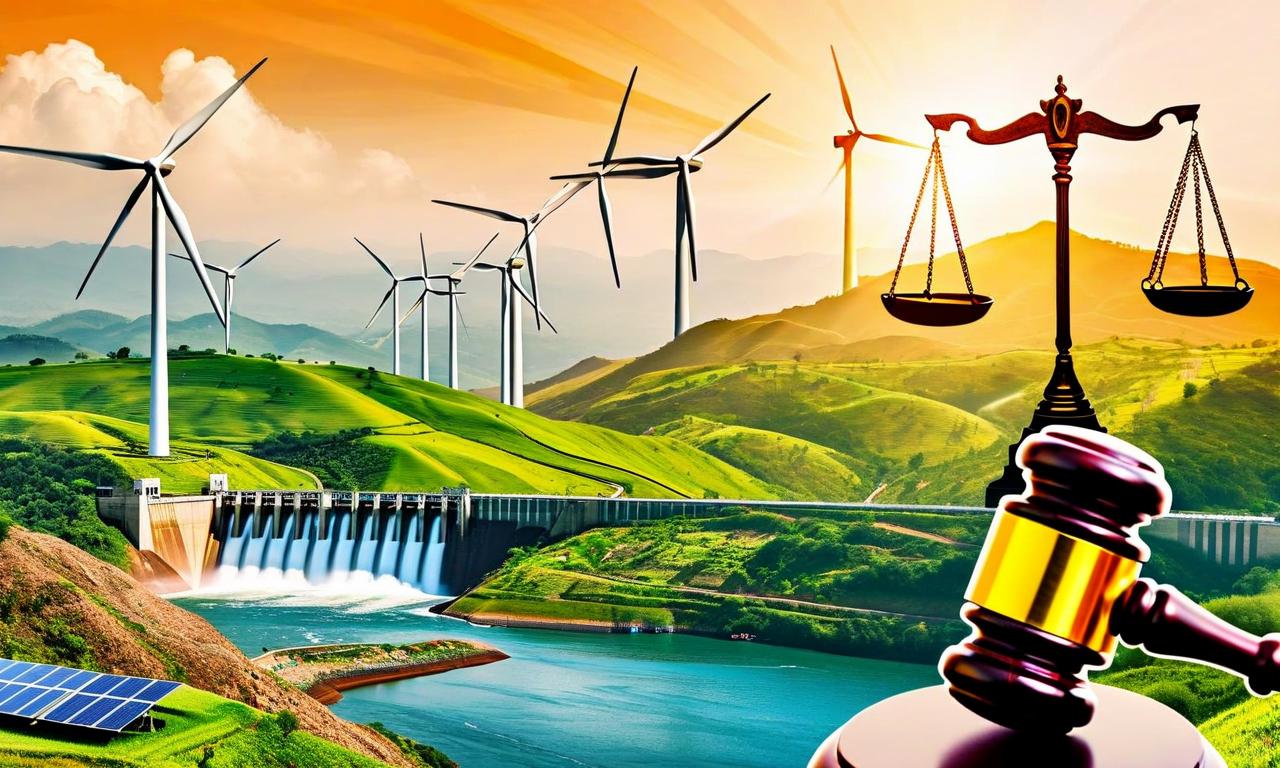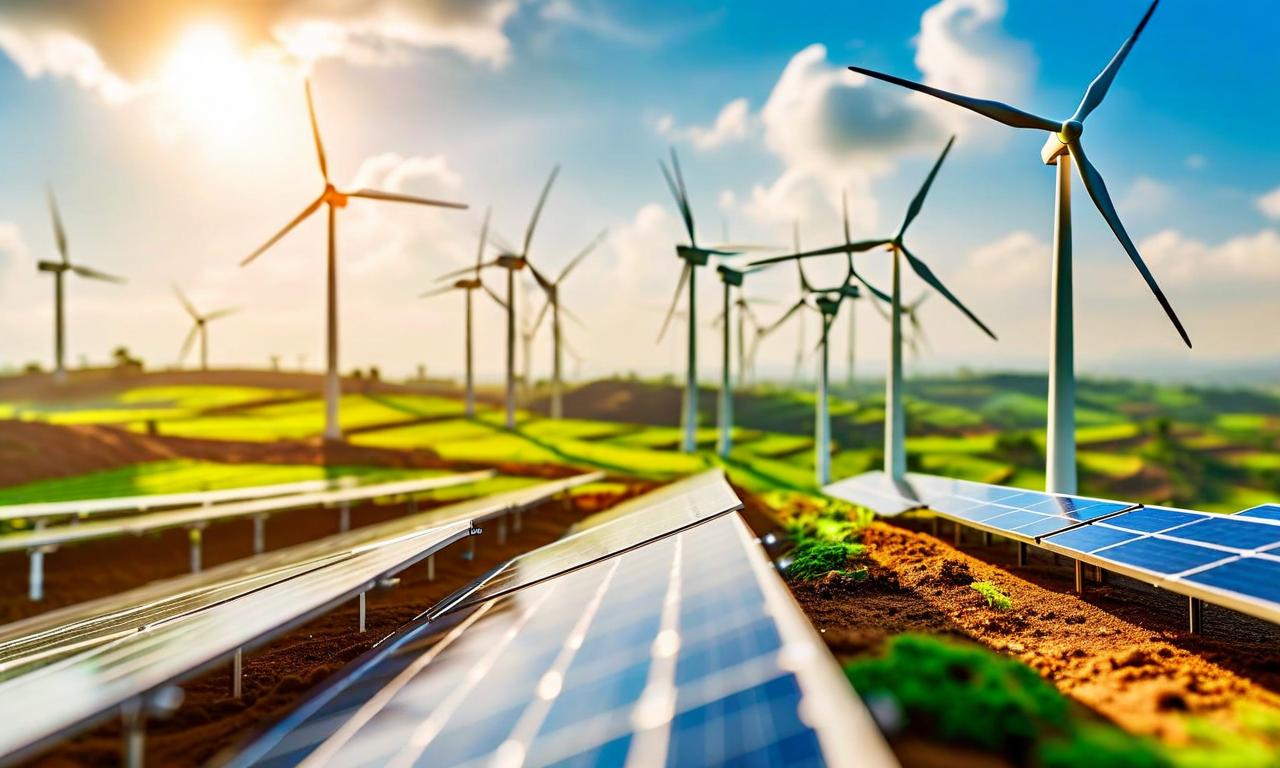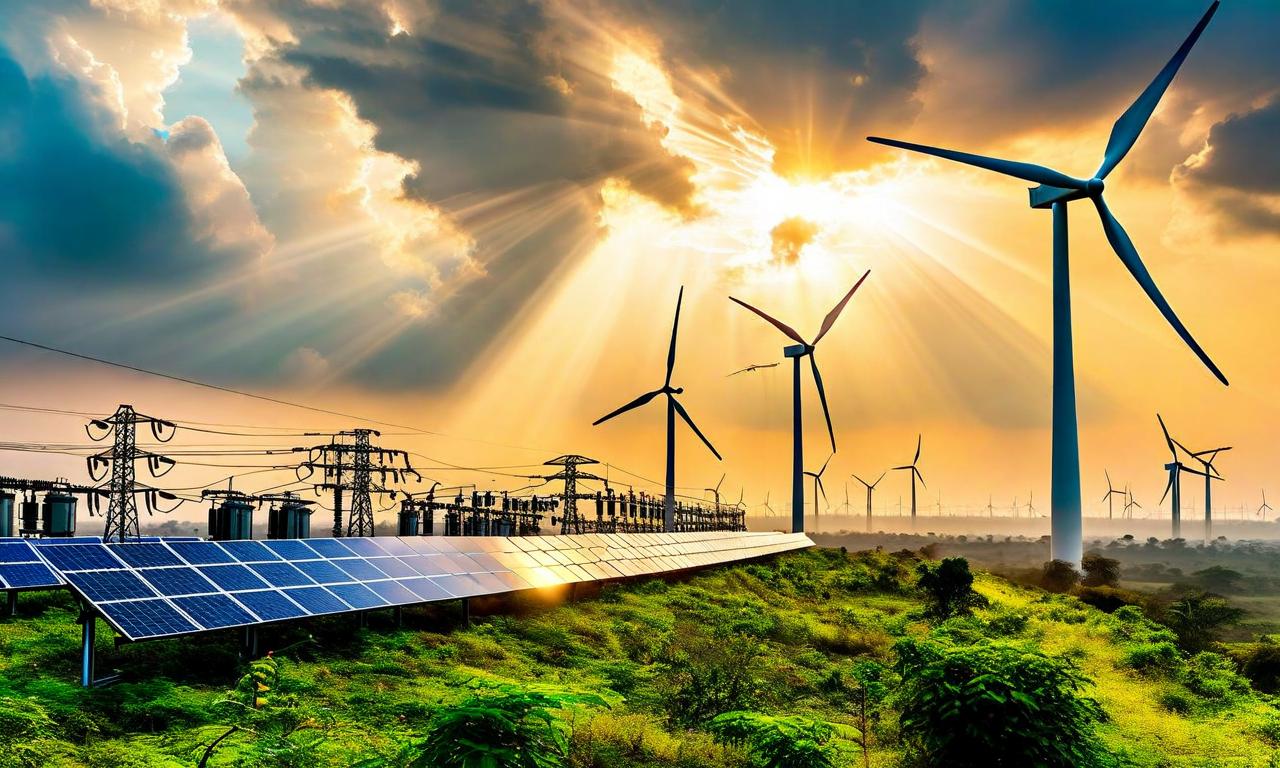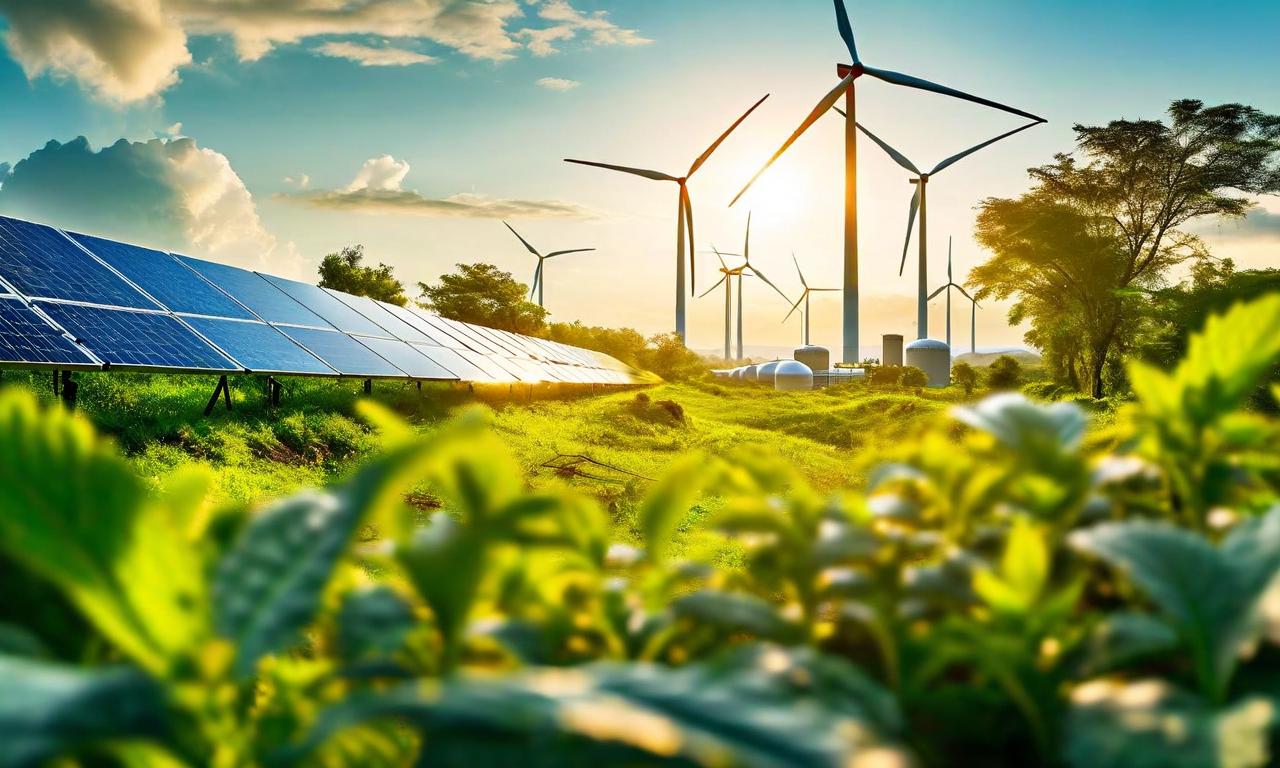Renewable Energy Firms Challenge GST on REC Trading in High Court
Leading renewable power companies have filed a legal case in the Delhi High Court against GST demands on Renewable Energy Certificates (RECs) trading. The petitioners, including Global Energy and Wind World Resources, argue that RECs should be classified as 'securities' and thus exempt from GST. This dispute could significantly impact clean energy compliance costs and policy frameworks in India. The case highlights the complex relationship between taxation policies and renewable energy initiatives, with potential implications for the future of renewable energy trading and compliance in the country.

*this image is generated using AI for illustrative purposes only.
Leading renewable power companies have taken legal action against GST demands on Renewable Energy Certificates (RECs) trading, bringing the matter to the Delhi High Court. The case highlights a significant dispute in the renewable energy sector, with potential implications for clean energy compliance costs and policy frameworks.
Key Points of the Legal Challenge
- Petitioners: Global Energy, Wind World Resources, Wind World Infrastructure, Vaayu Renewable, and Vaayu Infrastructure
- Respondents: GST authorities in Gujarat, Tamil Nadu, Andhra Pradesh, and Karnataka
- Core Issue: Whether RECs should be subject to GST
Legal Arguments and Implications
The renewable energy companies argue that RECs should be classified as 'securities', which are exempt from GST. This classification dispute forms the crux of the legal battle, with significant implications for the renewable energy sector.
| Aspect | Details |
|---|---|
| Legal Dispute | Whether RECs constitute goods, services, or securities under GST law |
| Industry Concerns | Potential increase in clean energy compliance costs |
| Policy Impact | Possible disruption of frameworks designed to incentivize renewables |
| Financial Risk | Creation of retrospective liability burdens for companies |
Understanding RECs
Renewable Energy Certificates are market-based instruments that play a crucial role in meeting Renewable Purchase Obligations. They are particularly valuable when direct green power sourcing is not feasible.
| REC Characteristics | Details |
|---|---|
| Trading Platforms | Indian Energy Exchange, Power Exchange India Limited |
| Primary Function | Help energy consumers meet Renewable Purchase Obligations |
| Market Role | Facilitate compliance when direct green power sourcing is challenging |
Next Steps
The Delhi High Court has scheduled the next hearing. The outcome of this case could have far-reaching implications for the renewable energy sector, potentially affecting the cost structure and incentive mechanisms for clean energy in India.
This legal challenge underscores the complex interplay between taxation policies and renewable energy initiatives. As the case progresses, it will be crucial to monitor how the court's decision might shape the future landscape of renewable energy trading and compliance in India.
































